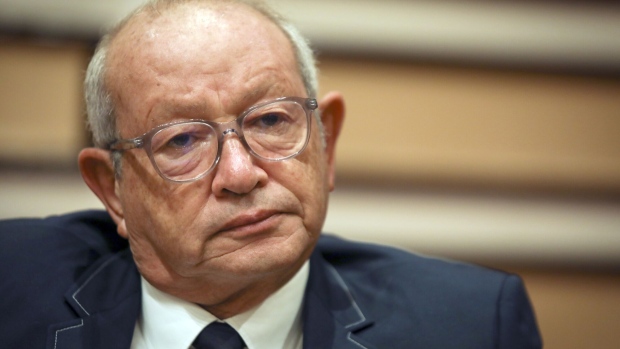Jan 30, 2024
Egypt Billionaire Urges Big Devaluation and Warns of ‘Disaster’
, Bloomberg News

(Bloomberg) -- Egyptian billionaire Naguib Sawiris criticized delays in enacting a long-awaited devaluation of the pound, suggesting authorities match the spiraling black market rate to end the nation’s chronic foreign-currency shortage.
Postponing reforms is “a disaster that will increase the extent of the critical situation we are in,” Sawiris said in an Arabic-language post on social media platform X. Egypt’s pound has plunged on the parallel market to 68-70 per dollar in recent days, leaving it more than 50% weaker than the official rate of about 30.9.
“The right way is to start from the black market rate and then it will go down gradually, so everyone would agree on selling their dollars through the official channels if the two rates became equal,” Sawiris said.
Most analysts expect Egypt to carry out what would be its fourth devaluation since early 2022 in the first quarter of this year. But Sawiris, who’s ranked as Africa’s seventh-richest person on Bloomberg’s Billionaires Index, suggested Egypt needs more than gradual adjustments to resolve the crisis.
“Any attempt to solve the dual exchange rates by offering the dollar at a lower rate than the black market won’t be successful,” Sawiris said.
The previous run of devaluations has already slashed the pound’s value by half, roiling businesses and consumers alike in the Middle East’s most populous nation. Another move would fuel a further painful surge in inflation, which recently began cooling after hitting a record 38% in mid-2023.
To hedge themselves against the devaluation-inflation spiral in the country, local investors have been flocking to the stock market. The benchmark EGX30 index rose more than 18% in January in dollar terms, making it the world’s third best-performing stock exchange, after Argentina and Nigeria. Derivative traders have meanwhile been ramping up their bets on a devaluation through short-term non-deliverable forwards.
Sawiris, who owns stakes in gold mines via La Mancha Resources, is known for sharing blunt opinions with his 8.3 million followers on X. Still, his comments mark a relatively rare intervention from him on the currency, one of Egypt’s hottest economic topics.
Egypt secured a $3 billion rescue package from the International Monetary Fund more than a year ago. But the Washington-based lender has delayed two reviews of the pact, waiting for authorities to allow a more flexible exchange rate and make good on other promised reforms before handing over more funds.
--With assistance from Kerim Karakaya.
(Adds market details in seventh paragraph.)
©2024 Bloomberg L.P.






